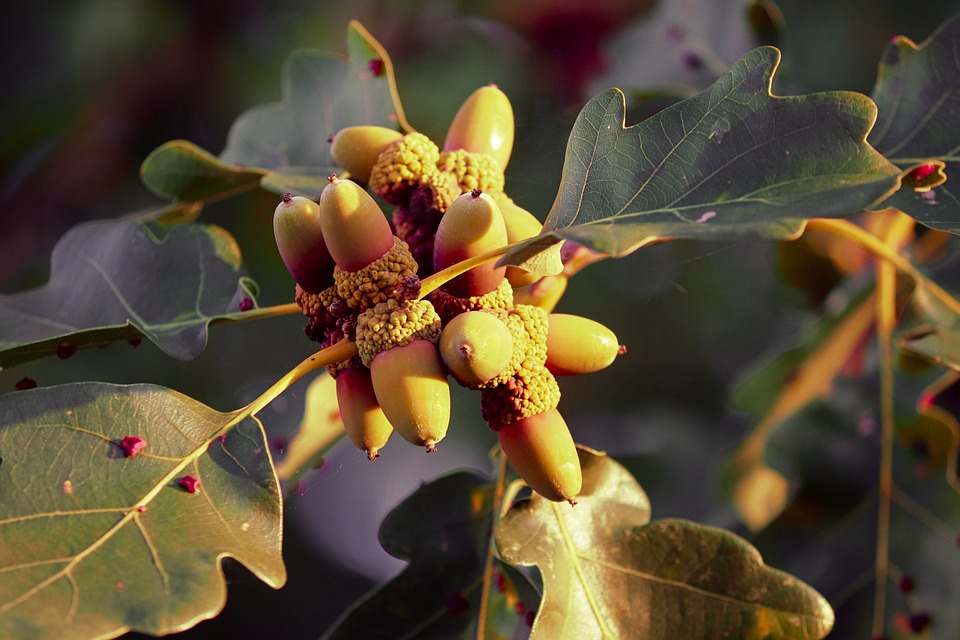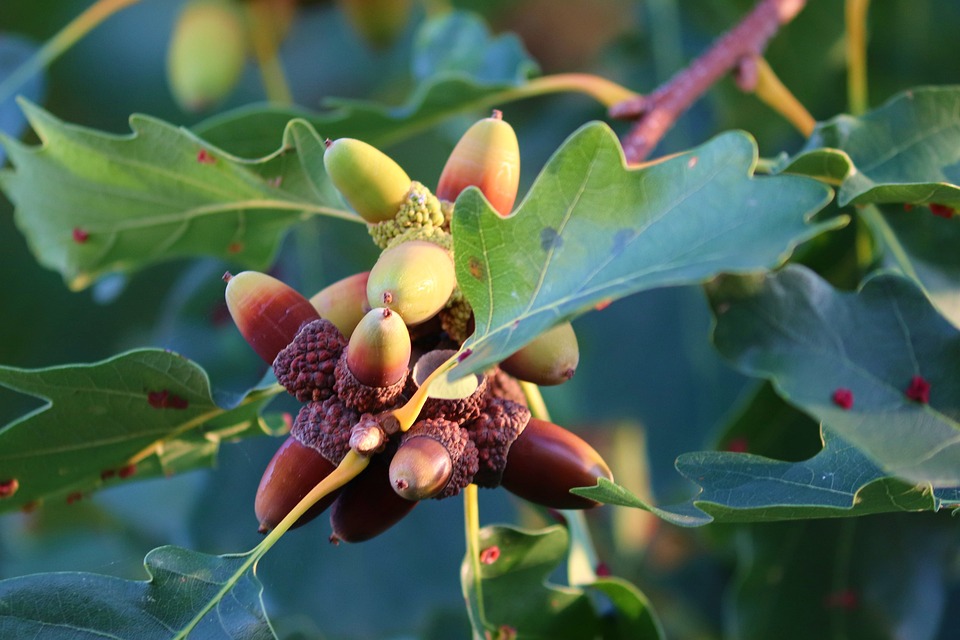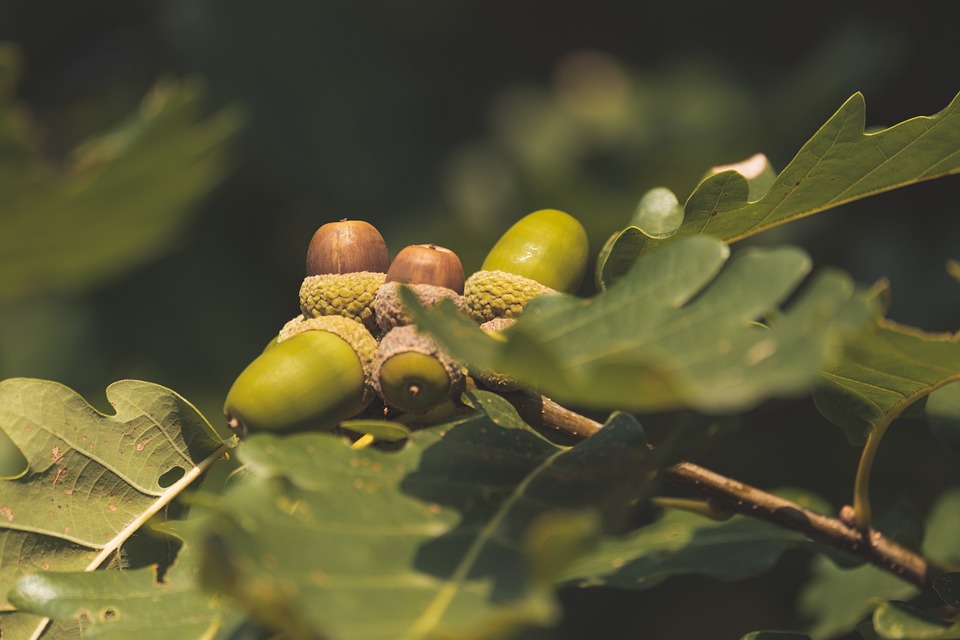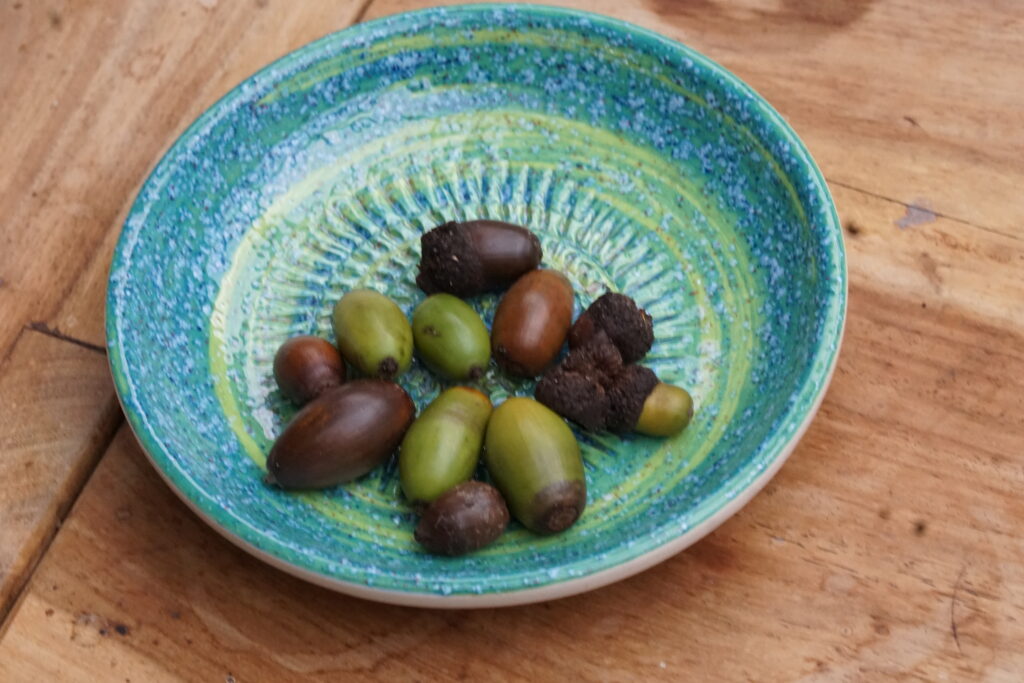Quercus petraea (Sessile Oak, Winter Oak)
Quercus petraea (the Sessile Oak, also known as the Winter Oak) reaches growth heights of up to 40 meters and trunk girths of up to 2 meters. It can live up to 1000 years.
Acorns ripen from September to October and grow up to 2.5 cm long. They grow in a kind of “cluster” (hence the name sessile oak). The bark of this oak species is smooth when young. A thick, deeply longitudinally fissured, gray-brown bark develops with age.
This species of oak is often found in slightly mountainous areas, it seems to especially like sunny slopes. It is found in many European countries (from Italy to Scandinavia). It is found especially on stony and clay soils; likewise on nutrient-poor soils. However, it does not like waterlogging and too much moisture. It is considered storm-resistant and can penetrate soil layers that are poor in oxygen. In sub-Mediterranean climates, it forms mixed forests with downy oak and Turkey oak. Evidence shows that it has been present in Europe for about 10 million years.
Quercus petraea is relatively drought resistant and is more likely to survive climate warming than the English oak. It is considered to be very heat-loving. It is also considered (in Europe) to be tolerant of heat, drought, emissions and salt. For these reasons, it is also often planted in urban areas. Sessile oaks sprout very early in the year and their leaves can still be found late in the season.
The acorns have a high starch content (almost 40%) but are very bitter without specific water treatment (flushing). However, in principle, they are suitable for an acorn coffee.
Originally, they were used especially for fattening pigs (even before the use of wood). The wood is readily used for construction activities or even wine barrels. In Central Europe, the sessile oak provides a home for up to 500 insect species.
In medicine, the sessile oak is widely used because it is very rich in tannins. Pieces of bark used to be placed on wounds and injuries because they prevent inflammation and stop bleeding. Oak tea of this type is also used against liver disorders and diarrhea.
About the sessile oak see also this link
You can buy acorns of sessile oak in our store.




